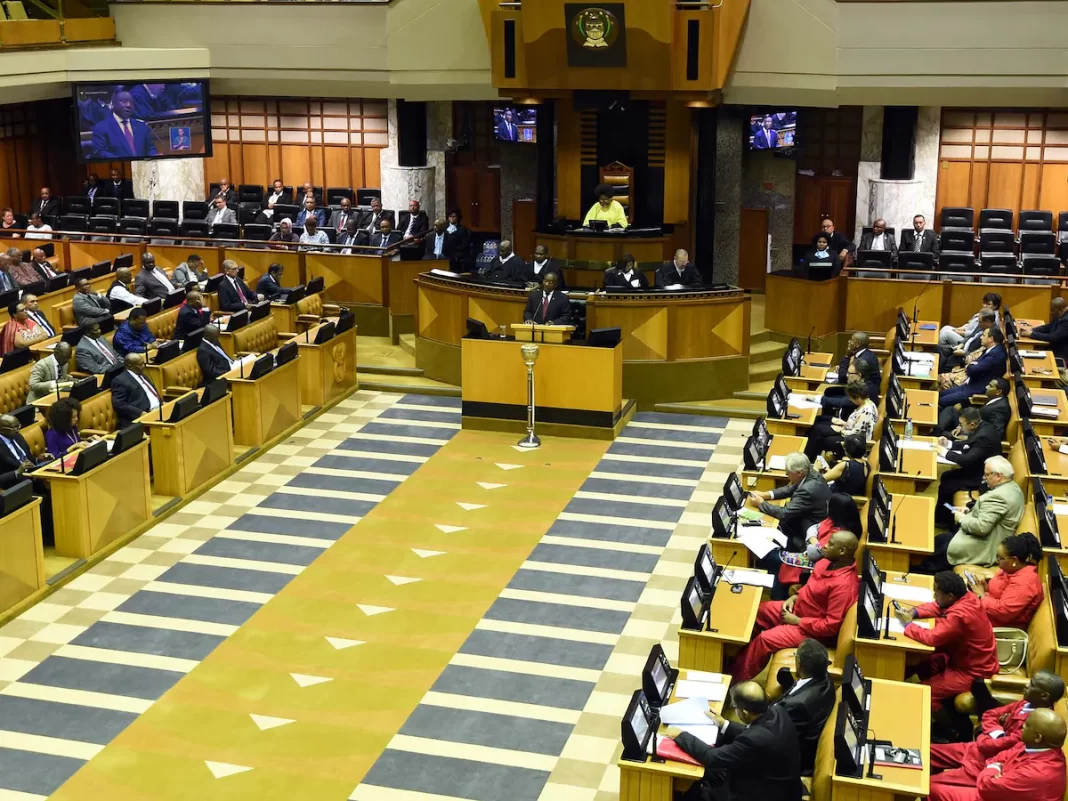Johnathan Paoli
The DA is expected to put the Public Administration Laws General Amendment Bill (PALGAB), colloquially known as the “End Cadre Deployment Bill” before the National Assembly on Tuesday which the party has claimed is designed to replace cadre deployment with merit-based appointments throughout the public sector.
DA Shadow Minister for Public Service and Administration Dr Leon Schreiber said that the bill aims to make it a criminal offence to interfere in public sector appointment processes, and to prohibit political office-bearers from employment in the public service.
Schreiber said the bill will seek to prohibit special service benefits for Directors-General (DGs) and Heads of Department (HODs) who are dismissed from public service, as well as enhancing the financial and administrative independence of the Public Service Commission (PSC); and mandating the PSC to enforce merit-based appointments free from political interference.
The shadow minister said that any political party which voted against the ‘End Cadre Deployment Bill’ would expose itself as an enabler of the systemic corruption that caused state capture and the collapse of service delivery.
“The only reason anyone would oppose the Bill’s provisions for merit-based appointments and criminalising cadre deployment, is if they are complicit in this crime against the people of South Africa,” Schreiber said.
Earlier this month, the ruling party suffered a legal setback when the SCA ruled against the party’s attempts to keep its cadre deployment records confidential, despite a high court ruling which held the decision as unlawful and invalid.
However, last week the ANC said it would pursue the matter and take it to the Constitutional Court.
Schreiber initiated the legal proceedings after his PAIA application for the release of cadre deployment records was denied in 2021.
The ANC disagreed with the Bill, with the party’s National Working Committee (NWC) deliberating in a meeting in June this year, upon the judgment and committing the party to continue mobilising directly as a party and through initiatives of government.
The committee said that whilst it reiterates its respect of the outcomes of the courts and their independence, including due processes of the law, it remains steadfast in the protection of ANC property and information from other parties.
“The ANC will use available legal avenues and recourse to the courts to preserve its information which is the property of the ANC to the exclusion of any other party,” the NWC said in a statement.
Support for the bill remains mixed as the EFF and PA have been among those accused by the opposition party of exemplifying ANC-like cadre deployment policies.
The red berets, have historically sought to overhaul the ANC cadre deployment policy from the bottom up, introducing the concept of “revolutionary councilors” in the party’s founding manifesto, urging for knowledge, social contribution and behaviour above reproach, as the core requirements instead of political motives as an attempt to engage what many have called the “fat-cat” culture of the current corrupt situation.
During its policy conference held earlier in the month, ActionSA said although political affiliations can still play a role in the appointment of government officials in some cases, they must be managed and staffed by highly qualified, ethical and committed public servants.
Public Service Co-Chairpersons Thoko Mashiane and Andrew Louw said that ‘institutional strengthening’, public service capacitation, and corporate governance remain fundamentally necessary to address the structural weaknesses currently present in the public sector of the country.
“ActionSA believes that government functions, especially those related to service delivery, should be decentralised and entrusted to efficient provincial and local governments that are closer to the people they serve. However, this decentralization should be preceded by institutional strengthening and independent capacity assessments to ensure improved service delivery,” Mashiane said.
The debate in parliament today is expected to shape the future course and scope of political appointments in the country and assist in ensuring and improving service delivery.
INSIDE POLITICS



